MAN Mourns Former President Muhammadu Buhari, Calls it a Great Loss to the Nation



 By Winifred Bosa
By Winifred Bosa
Nigeria’s leading commercial bank, First Bank of Nigeria, has joined forces with Mighty Media Plus Network Limited for the maiden edition of the QEDNG Creative Powerhouse Summit.
Also supporting the event are Nigeria LNG (NLNG) and Shell Nigeria, two major players in the country’s energy and development sectors.
Chief Executive Officer of Mighty Media Plus Network Limited, Olumide Iyanda, announced the partnerships in a statement on Monday.
Mr Iyanda described FirstBank’s involvement as a strong statement of the bank’s belief in the power of Nigeria’s creative sector.
“FirstBank’s support is a reaffirmation of its long-standing commitment to promoting the creative economy,” he said. “Through First@arts, the bank has become a reliable partner to talents, institutions, and organisations working to grow Nigeria’s cultural assets.”
First@arts is FirstBank’s platform for supporting the arts. It provides financing, advisory services, and exposure for creatives across the value chain. The bank has backed major cultural events and partnered with institutions such as British Council, Duke of Shomolu Productions, Live Theatre Lagos, Freedom Park and Terra Kulture.
Among the projects FirstBank has supported are The Headies Awards, Lagos International Theatre Festival, The Oxymoron of Kenny Blaq, Kurunmi, Eni Ogun, and Oke Langbodo.
Iyanda also praised NLNG for its role in promoting excellence in literature and science through The Nigeria Prize for Literature, The Nigeria Prize for Science, and The Nigeria Prize for Literary Criticism.
“NLNG has shown leadership by rewarding creativity and innovation in ways that impact both the literary and scientific communities,” he said.
The prizes, worth up to USD100,000, are among the most prestigious on the continent. They celebrate Nigerian authors, critics, and scientists whose work makes a real difference.
Shell’s support for the summit reflects its ongoing commitment to education and social development. The company focuses on sustainable, community-driven educational projects, ranging from scholarships to infrastructure development and ICT donations.
“Shell’s belief in education as a foundation for long-term progress aligns with our vision for the summit,” Iyanda added.
He further noted that more sponsors will be unveiled in the coming weeks.
The QEDNG Creative Powerhouse Summit, themed “Financing as Catalyst for a Thriving Creative Economy,” will take place on Tuesday, August 12, 2025, at 10:00 a.m. The venue is the prestigious Radisson Blu Hotel, Isaac John Street, Ikeja GRA, Lagos.
The summit will bring together creatives, investors, policymakers, and business leaders to explore solutions to the funding challenges facing Nigeria’s creative industries.
 In Nigeria today, unwanted messages have evolved from a mere annoyance into a serious security risk. From deceptive investment opportunities to phony bank notifications, spam communications have transformed into complex frauds that target unsuspecting victims.
In Nigeria today, unwanted messages have evolved from a mere annoyance into a serious security risk. From deceptive investment opportunities to phony bank notifications, spam communications have transformed into complex frauds that target unsuspecting victims.
The Manufacturers Association of Nigeria (MAN), the advocacy voice of manufacturers in Nigeria has applauded the Ogun State Government on its proactive and sustainable approach to managing plastic waste, especially single use plastics in the state.

The winners, budding entrepreneurs developing innovative solutions across various business value chains including fashion design, bag making, pastry making, event management, beauty, vegetable farming, and more, emerged tops after participating in a business pitch competition held recently for Batch A Stream 2 across 10 NYSC Orientation Camps in Cross River, Niger, Abuja, Nasarawa, Taraba, Kaduna, Plateau, Jigawa, Anambra, and Lagos States.
At the NYSC Orientation Camp in Ipaja, Lagos State, corps member Adeniyi Stephen Gbemininyi, who pitched a fashion design business, emerged as the overall winner, clinching the ₦800,000 grand prize. Kolawole Opeoluwa Darasimi, a budding bag maker, won a ₦500,000 grant, while Johnson Elizabeth Ene received a ₦300,000 grant to support her cake and pastry business.
Across the remaining nine states, 27 other winners also emerged after pitching business plans in diverse sectors such as fish production, poultry farming, fashion, soap and cake making, printing, piggery, beverage production, and more.
Over the past six years, the Unity Bank Corpreneurship Challenge has become an integral part of the NYSC programme, aligning with the Federal Government’s commitment to upskilling fresh graduates amid the growing dearth of white-collar jobs. The programme attracts thousands of applications from serving NYSC corps members, whose business plans are evaluated for originality, marketability, employability potential, and overall business acumen.
Speaking during the grand finale in Lagos, Unity Bank’s Divisional Head, Retail & SME, Mrs. Adenike Abimbola, said: “At Unity Bank, we believe that empowering young people to shape Nigeria’s economic future must be supported to provide longer-term sustainability. Through the Corpreneurship Challenge, we are not just providing funding, but nurturing a new generation of entrepreneurs equipped with the skills, resources, and confidence to create jobs and transform communities. The success stories we see year after year reaffirm our commitment to youth empowerment and SME development.”
She added: “The overwhelming interest and high quality of business ideas we receive in every edition demonstrate the incredible potential among Nigeria’s youth. We are proud to partner with the NYSC SAED to make these dreams a reality.”
The Corpreneurship Challenge has earned Unity Bank national recognition for its contribution to youth empowerment and job creation, attracting over 2,000 applicants per edition.
In partnership with the NYSC Skill Acquisition and Entrepreneurship Development (SAED) programme, the initiative features a business pitch competition that allows participants to present their business plans and win grants of up to ₦800,000.
So far, Unity Bank has invested over ₦100 million in the initiative, producing over 160 winners since its launch in 2019.
By Fidelia Okafor

The President of the Manufacturers’ Association of Nigeria (MAN), Otunba Francis Meshioye, alongside the Director-General, Segun Ajayi-Kadir, led a distinguished delegation on a courtesy visit to the British American Tobacco (BAT) factory in Ibadan.
This visit not only underscores BAT’s critical role as a dedicated member of MAN but also highlights the organisation’s ongoing efforts to strengthen collaboration between the government and the manufacturing sector.
During the visit, Meshioye, the president of MAN, commended BAT for its high operational standards and commitment to excellence.
“From the moment we arrived, BAT’s dedication to safety, quality, and innovation was evident. The company’s Environmental, Health, and Safety (EHS) induction process reflects its strong commitment to workplace safety and employee welfare. I encourage BAT to intensify its transition to reduced-risk products. MAN remains committed to supporting BAT’s initiatives and recognises its leadership in the sector,” Meshioye stated.
Echoing this sentiment, Ajayi-Kadir, MAN DG, applauded BAT for its resilience and steadfast commitment to the Nigerian manufacturing landscape, particularly in the face of a complex regulatory environment.
“BAT stands out as a responsible and committed member of MAN, effectively addressing industry challenges. The government needs to support businesses that adhere to regulations, and BAT exemplifies this commitment. We deeply appreciate BAT’s substantial contributions to the manufacturing sector and encourage the company to continue its efforts,” he added.
The delegation observed BAT’s rigorous EHS induction protocols, reinforcing the company’s unwavering commitment to workplace safety.
The visit coincided with BAT’s celebration of an impressive milestone: four years of zero lost-time incidents at the factory which highlights BAT’s robust safety culture and operational excellence, setting a benchmark within the industry.
The visiting delegation participated in a guided factory tour, donning protective gear to witness BAT’s advanced production processes firsthand.
Hasnain Ishtiaq, BAT’s Operations Director, reaffirmed the company’s commitment to sustainability and employee welfare.
“At BAT, we are dedicated to building A Better Tomorrow by prioritising employee safety, minimising our environmental impact, and embracing sustainable practices. Our mission is to continue innovating and leading the industry while upholding responsible manufacturing standards,” he stated.
Ishtiaq highlighted BAT’s legacy since its founding in 1902, noting its presence in Nigeria since 1912 and the commissioning of the Ibadan facility in 2003.
“With ₦500 billion in tax remittances (2018–2024), we have created over 350,000 jobs and strengthened Nigeria’s economy,” he said.
He emphasised that the Ibadan factory, with 16 production lines, generates up to $110 million in foreign exchange annually.
“This visit and MAN’s endorsement reaffirms BAT’s role as a strategic manufacturing partner committed to innovation, safety, and sustainability,” he concluded.
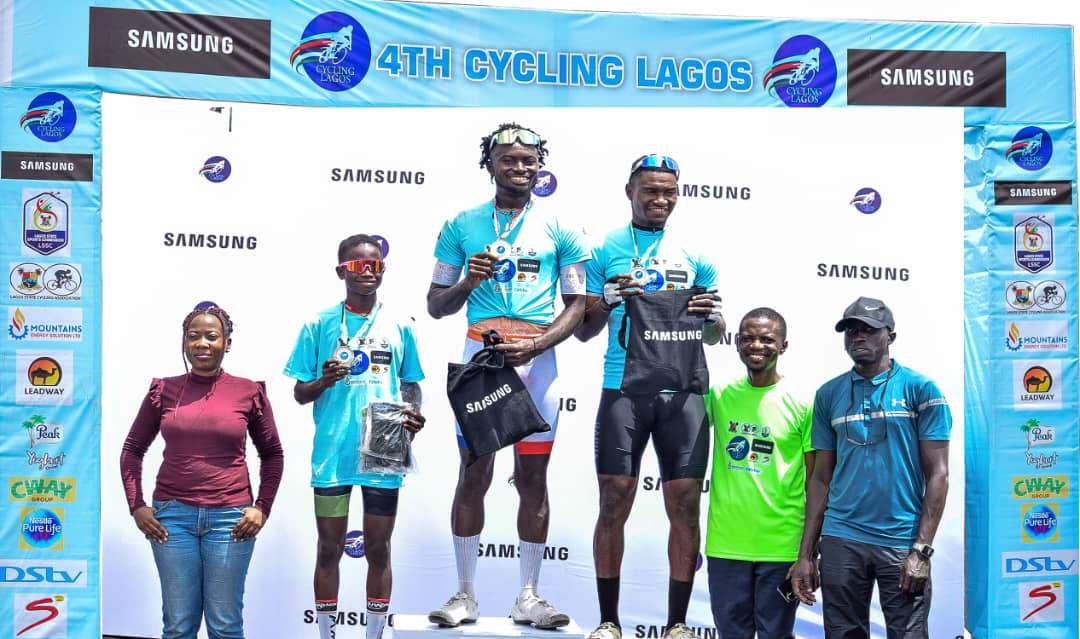
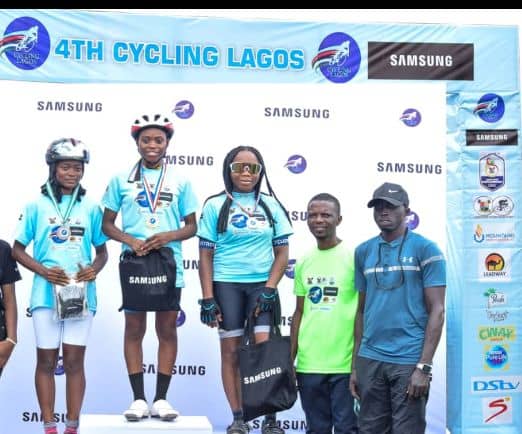
The National Stadium in Surulere, Lagos, came alive on Saturday as cyclists from all corners of the country gathered in full force for the thrilling 4th edition of Cycling Lagos event.
By Fidelia Okafor
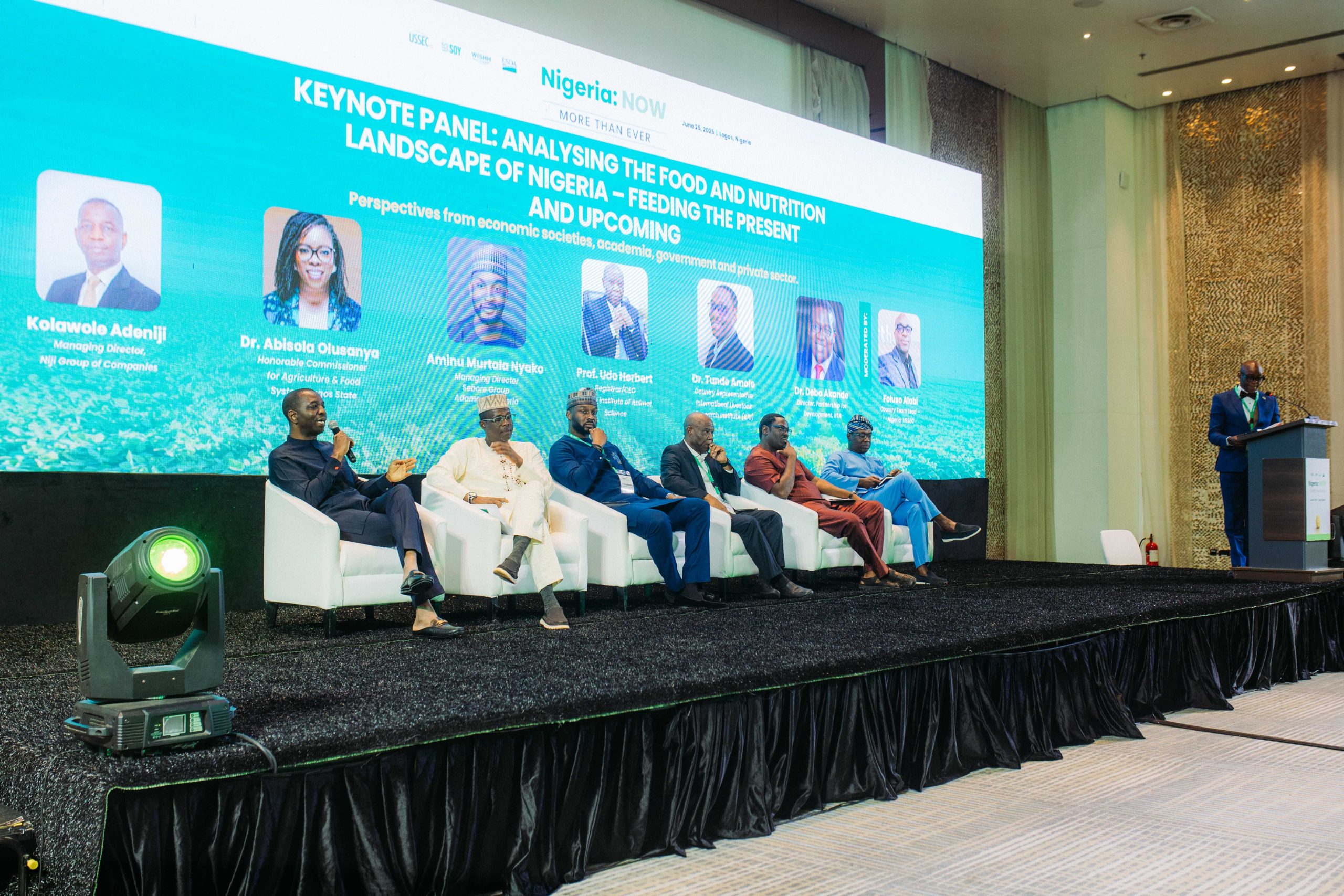
The U.S. Soybean Export Council hosted its signature “Nigeria: NOW” conference in Lagos this week, bringing together stakeholders across the government and private sectors, including poultry producers, nutritionists and more.
Participants dove into discussions about addressing Nigeria’s protein gap, trade and economic growth.
Speaking at the event, Acting U.S. Consul General, Lagos, Nigeria, JoEllen Gorg emphasized, “The U.S. Soybean Export Council’s Nigeria: NOW conference marks a pivotal milestone in creating a pathway for mutual prosperity and shared economic success. By addressing Nigeria’s protein gap, fostering innovation, and promoting best practices, the U.S. Soy industry is helping to build a resilient agricultural sector in Nigeria, ensuring long-term food security and economic stability.”
She added, “We are enthusiastic about the opportunities arising from the collaboration between USSEC and the U.S. Mission in Nigeria. This partnership is crucial in helping export-ready U.S. companies build business relationships with Nigerian agribusinesses, training Nigerians in new agricultural practices, and promoting the use of U.S. soy in Nigeria’s feed and food industries.”
Participation by high-level Nigerian stakeholders, including former President, Chief Olusegun Obasanjo, Grand Commander of the Order of the Federal Republic; Engr. Seyi Makinde, Executive Governor of Oyo State; and Abisola Olusanya, Honorable Commissioner for Agriculture & Food System, Lagos State, emphasized the opportunity for greater collaboration between U.S. Soy and Nigeria.
With a population of over 236 million and growing, Nigeria’s protein consumption per capita remains low at only 45.4 grams per person per day compared to the FAO’s minimum recommended intake of 60 grams. The global average is around 64 grams. While Nigeria grows soybeans domestically, demand significantly outpaces supply. The USDA Foreign Agricultural Service estimated Nigeria’s local production at around 1.15 million metric tons for the marketing year (MY) 2023/24, with the animal feed sector accounting for the majority of its use.
As a result of the demand-supply mismatch this year, Nigeria imported 62,100 metric tons of soybeans from the U.S. after a pause of six years. This renewed access offers a promising opportunity for deeper collaboration between U.S. Soy and Nigeria.
“Trade is vital to the global economy and, more importantly, to local economies,” added Jim Sutter, USSEC CEO. “U.S. Soy is at the forefront of collaborating with its partners as a reliable supplier.”
Robert Alpers, a generational U.S. Soy farmer and United Soybean Director, echoed this, “I’m proud to be playing my role in helping to feed the world sustainably. As U.S. Soy farmers, we are committed to ensuring we produce more using fewer resources and reducing our environmental footprint.”
By strengthening relationships, building trust, and leveraging comparative advantage, Nigeria and U.S. Soy can achieve mutually beneficial economic growth and a protein-secure future.
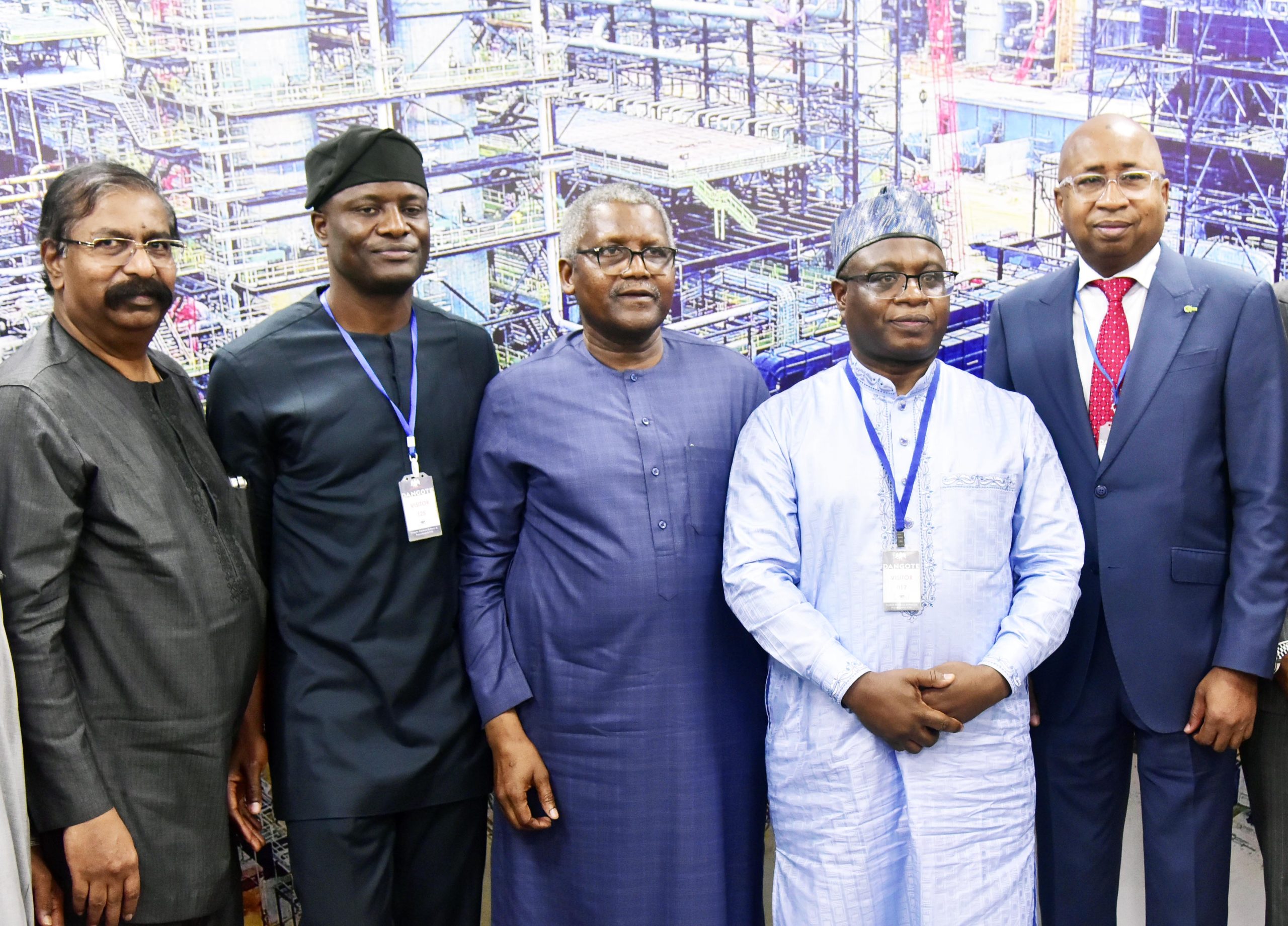
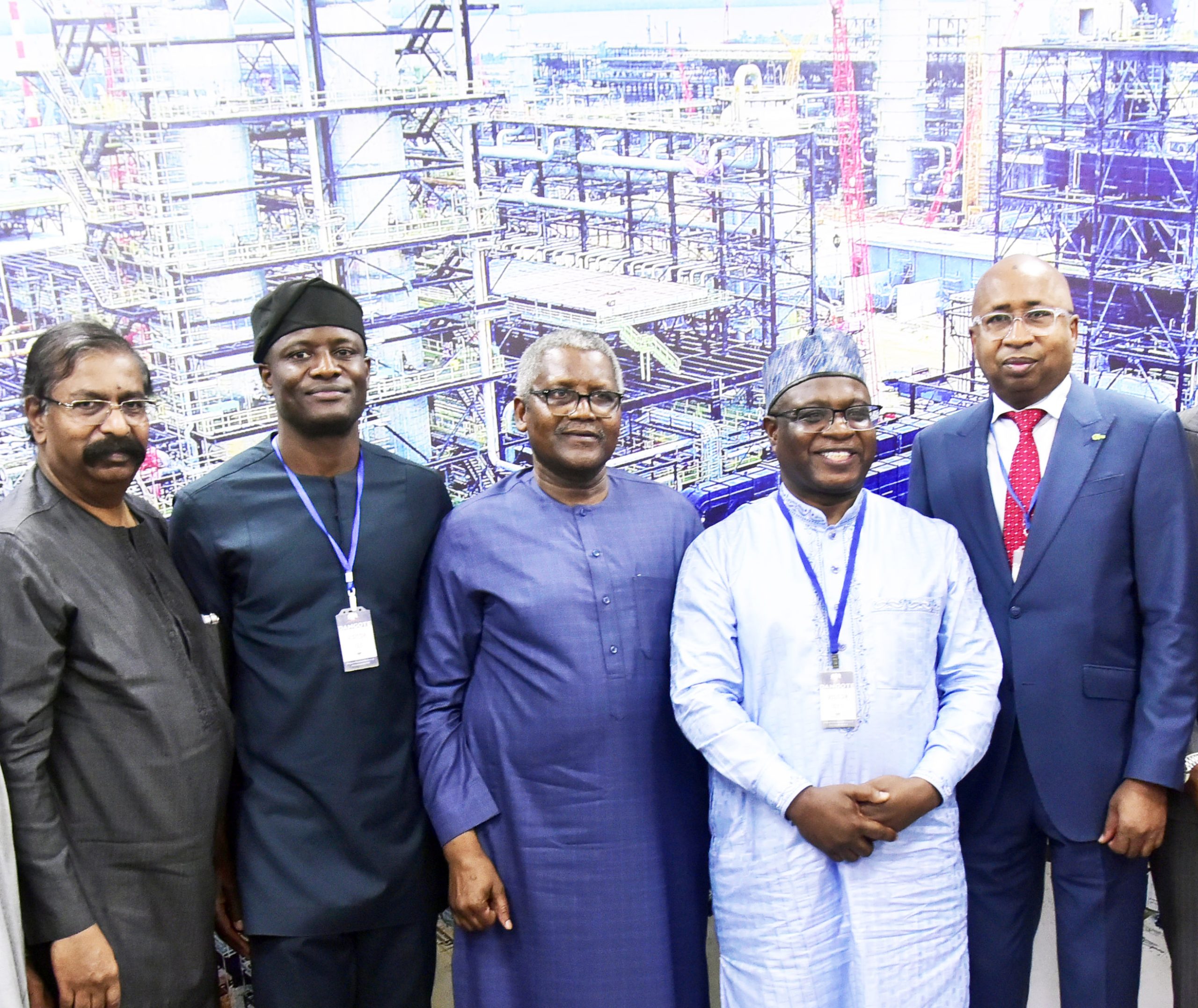
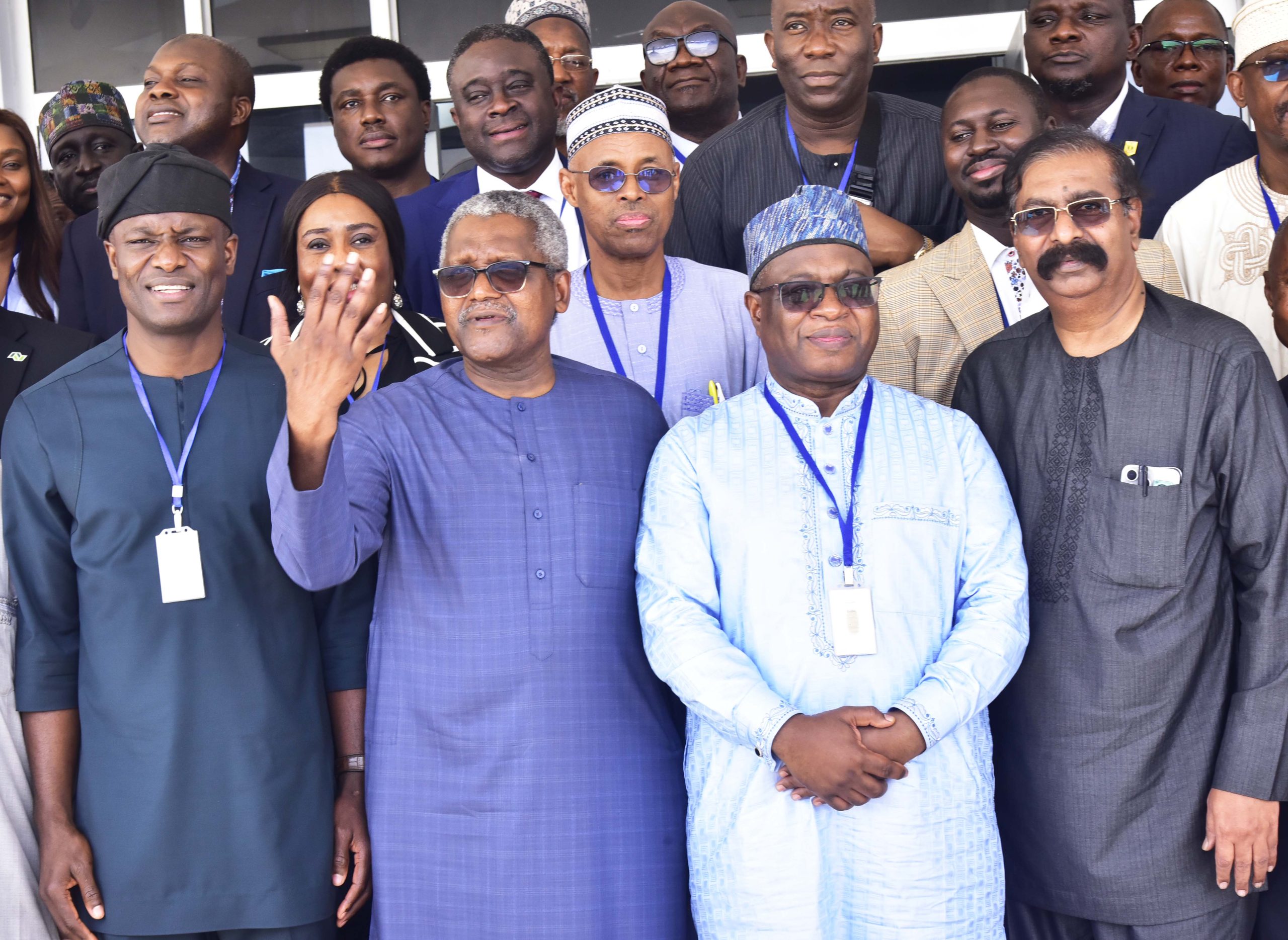
The Group Chairman of Nigerian Exchange Group (NGX Group), Alhaji (Dr.) Umaru Kwairanga, has praised the President/Chief Executive, Dangote Group, Aliko Dangote for his substantial contributions to the Nigerian capital market and private sector development.
He noted this during a courtesy visit to the Dangote Petroleum Refinery & Petrochemicals and Dangote Fertiliser Limited by capital market stakeholders.
Kwairanga, who called for the listing of Dangote Petroleum Refinery and Dangote Fertiliser on the NGX, stated that it would represent a natural progression in the Dangote Group’s journey towards transparency, market leadership, and inclusive wealth creation.
Noting that the Nigerian capital market takes great pride in Dangote and his contributions to the economy, he commended the impact of the Dangote Petroleum Refinery on the Nigerian economy, stressing that the various initiatives introduced have provided much-needed relief to Nigerians.
Kwairanga recalled Dangote’s tenure as President of the Council of the Nigerian Stock Exchange, describing him as a visionary whose leadership shaped the capital market landscape.
“Through the listing of companies such as Dangote Cement Plc, Dangote Sugar Refinery Plc, and NASCON Allied Industries Plc, the Group has significantly deepened market liquidity, boosted investor confidence, and driven long-term value creation for shareholders,” he stated.
The Chairman emphasised that the visit was more than a tour; it was a reaffirmation of the NGX’s commitment to aligning investment capital with national development goals.
The President/ Chief Executive of the Dangote Group, Aliko Dangote, reaffirmed that the Group will soon list the Dangote Fertiliser Limited on the Nigerian Exchange (NGX), with the aim of revolutionising the capital market.
He assured shareholders that those investing in Dangote Fertiliser Limited would not need to worry about the value of the local currency, as the company operates within a dollarised business framework.
“So, what are we aiming to do to bring about a major revolution in the capital market? The main challenge is that many investors are hesitant, thinking, ‘If I invest my naira now, by the time I receive dividends in ten years, the naira will have lost value.’ However, we are entering the market with a dollarised business model,” he explained.
Dangote further disclosed that the company is working on expanding its fertiliser plants to boost revenue, with a target dividend payment to shareholders exceeding $3 billion.
“In the next 40 months, our fertiliser business should generate $20 million in revenue per day. We are pushing hard. We expect to reach over $70 billion in revenue and possibly pay dividends of $3–4 billion. Our philosophy is to always think big,” he said.
He added that the Group is also strengthening its cement business by investing in new plants and targeting clinker exports to West African countries, which will boost revenue and provide better dividends for shareholders.
Praising the recent progress of the NGX, Dangote stressed that Nigeria needs companies like Reliance Industries Limited, which once held its Annual General Meetings in a stadium. Such companies, he noted, would stimulate the economy and encourage wealth distribution.
Emphasising that Nigeria cannot attain its $1 trillion economy target without a vibrant stock exchange, Dangote affirmed his continued engagement and support for the NGX, acknowledging its crucial role.
The Vice President of Oil & Gas at Dangote Group, Edwin Devakumar, who led the delegation on a tour of the facilities, described the construction of the 650,000-barrel-per-day refinery as a monumental achievement that demanded immense courage, vision, and determination. He noted that the Group acted as its own Engineering, Procurement, and Construction (EPC) contractor for the refinery—a feat never before attempted at this scale.
He also stressed that the refinery has ensured Nigeria is no longer reliant on imports to meet its petroleum needs and is now exporting refined products to various continents worldwide.
Also present were the CEO of NGX, Temi Popoola; Managing Director/CEO of Central Securities Clearing System Plc (CSCS), Haruna Jalo-Waziri; CIS President, Oluropo Dada; ASHON Chairman, Sam Onukwe; CEO of NGX Regulation, Olufemi Shobanjo; CEO of Lagos Commodity Exchange, Akeredolu Ali; and other major stakeholders.